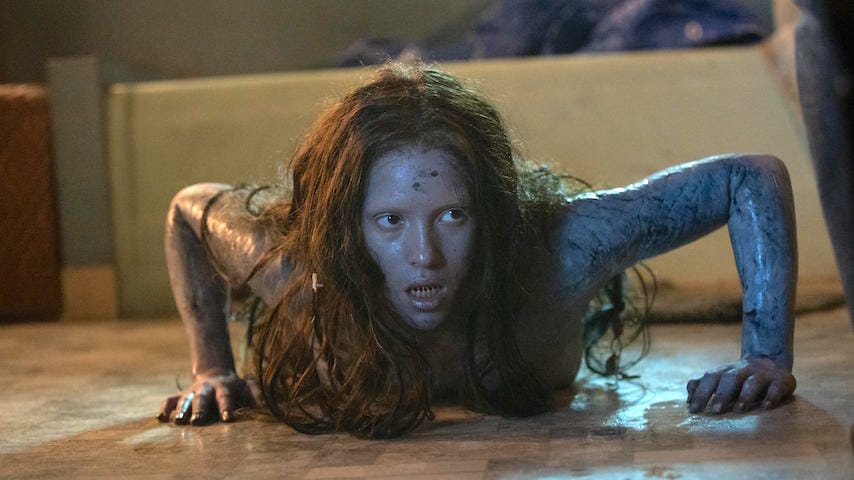Monsterland‘s Dreary, Uneven Fairy Tale Anthology Is Committed to Bumming You Out
Photo Courtesy of Hulu
Monsterland truly believes Hell is other people—in the sense actually meant by Jean-Paul Sartre, where we are trapped inside the expectations and appraisals of others. The ultra-depressing fairy tales that compose creator/writer Mary Laws’ Hulu anthology, based on Nathan Ballingrud’s North American Lake Monsters, may actually feature the supernatural, but its darkest demons grow from its damaged protagonists’ dire emotional surroundings. Infrequently compelling but often disturbing, the series mostly constructs allegorical bummers using the oldest tricks in the horror handbook.
This horror anthology is no campy Into the Dark: this show is ACTUALLY dark, full of hate, cruelty, and struggle. Its self-serious grimness is sometimes to its detriment, but its scarier-than-average X-Files monsters-of-the-week usually pop thanks to its dramatic gravity. However, that same gravity weighs its stories down so intensely that moving through them can feel like trying to climb out of a black hole.
Compared to Ballingrud’s text—elegant and difficult short stories that dabble in the unreal, but are otherwise intensely dedicated to the flesh and blood of humanity—the series plods. Expanded to hourlong TV, negative narrative space has an unflattering light shined upon it. Imagination isn’t filling anything in since, well, the show’s got time to fill. At the same time, character relationships are condensed and intensified to 11, though there’s still time to dink around with an obligatory shot of the subject looking at themselves in the mirror. That’s not to mention those that warp or obscure original ideas (Ballingrud’s “S.S.”) into more cowardly yet palatable tales (“Eugene, Oregon”).
I got to see all eight episodes of this road trip through America’s spookiest sadsacks, which has a similar surface format to Quibi’s 50 States Of Fright (a series that has a similar amount of potential as a geographically-specific exploration of folklore). Running through their cities and towns are monsters—depression, alcoholism, pedophilia, capitalism—that overwhelm the living shadows, shapeshifters, and mermaids in genre metaphors that creep along a scale between eye-rollingly facile and searingly sharp. People battle these demons, but more often succumb to them.
Think personal versions of the pulpy metaphoric kind that Lovecraft Country pulled off in its first episodes. When it’s at its thematic best (“New Orleans, Louisiana”), the show subverts this—examining the limitations of a supernatural scapegoat—and at its worst, dives headfirst into its most facile comparisons. More often, it’s somewhere in between, with the quiet, iffy character studies colored by a genre element that feels extraneous rather than integrated. That deviation in quality isn’t unusual for an anthology, but it’s much easier to endure the lows of a lopsided series when it’s more lighthearted.
-

-

-

-

-

-

-

-

-

-

-

-

-

-

-

-

-

-

-

-

-

-

-

-

-

-

-

-

-

-

-

-

-

-

-

-

-

-

-

-








































